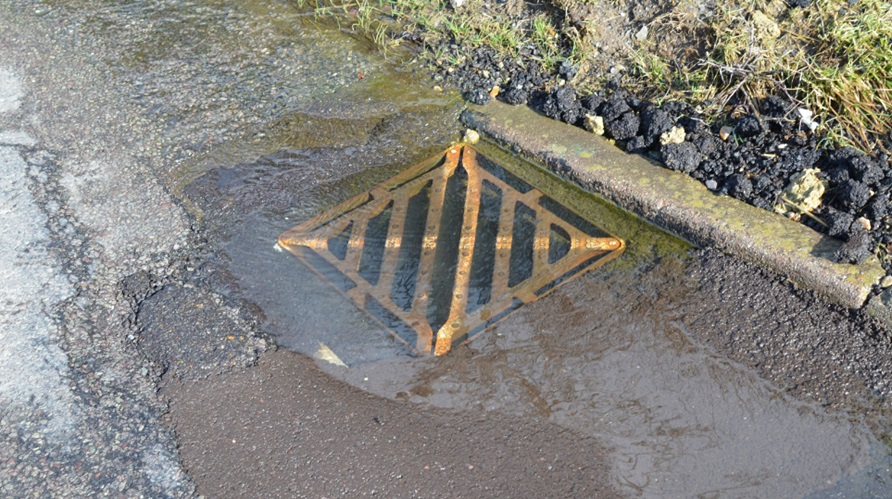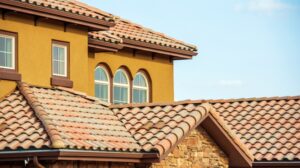
When embarking on a new construction project in Alpharetta, Georgia, one crucial aspect that homeowners and builders often underestimate is the importance of residential drainage in Alpharetta. Proper drainage is not just about preventing water accumulation; it’s a fundamental element that can significantly impact your property’s longevity, safety, and value. In this article, we’ll explore why residential drainage should be a top priority in your construction plans and how to protect your new building from water-related issues.
Understanding the Importance of Residential Drainage
What is Residential Drainage?
Residential drainage refers to structures and techniques used to manage water flow around and away from a property. This includes gutters, downspouts, French drains, grading, and other methods designed to direct water away from the foundation and prevent water accumulation on the property.
The Impact of Poor Drainage
Inadequate drainage can lead to a host of problems, including:
- Foundation damage
- Soil erosion
- Basement flooding
- Mold and mildew growth
- Landscape deterioration
- Increased pest problems
These issues not only compromise the structural integrity of your home but can also lead to significant financial burdens in the form of repairs and decreased property value.
Key Considerations for Residential Drainage
Site Analysis and Planning
Before breaking ground on your new build, it’s crucial to conduct a thorough site analysis. This involves:
- Assessing the natural topography of the land
- Identifying potential water sources and flow patterns
- Evaluating soil composition and permeability
A professional survey can provide valuable insights into how water naturally moves across your property, allowing you to plan your drainage system accordingly.
Proper Grading and Sloping
Proper grading is one of the most effective ways to manage water flow. The land should slope away from the foundation on all sides, typically at a rate of 6 inches over a distance of 10 feet. This gentle slope ensures water naturally moves away from your home’s foundation.
Implementing Effective Drainage Solutions
Depending on your property’s specific needs, you may need to implement various drainage solutions, such as:
- French Drains: These underground perforated pipes redirect water away from problem areas.
- Surface Drains: These catch basins collect and channel surface water to a designated area.
- Rain Gardens: These landscaped areas are designed to absorb and filter rainwater runoff.
- Retention Ponds: These can help manage significant amounts of water for larger properties.
Innovations in Residential Drainage
The field of residential drainage is constantly evolving, with new technologies and methods emerging to improve efficiency and sustainability. Some recent innovations include:
- Permeable Pavers: These allow water to penetrate through the surface and into the ground, reducing runoff.
- Smart Drainage Systems: IoT-enabled systems can monitor water levels and flow rates, providing real-time data to homeowners.
- Bioswales: These landscaped elements remove silt and pollution from surface runoff water.
Challenges and Common Misconceptions
Many homeowners need to pay more attention to the complexity of effective drainage systems. One common misconception is that more than simple solutions like gutters are required. While gutters are important, they’re just one part of a comprehensive drainage strategy.
Another challenge is balancing drainage needs with aesthetic considerations. However, with careful planning and design, drainage systems can seamlessly integrate into your landscape, enhancing rather than detracting from your property’s appearance.
The Role of Professional Expertise
While DIY enthusiasts may be tempted to tackle drainage issues themselves, the complexity of residential drainage often requires professional expertise. Erosion control specialists and landscape architects can provide invaluable insights and solutions tailored to your property needs.
Learning how to improve drainage in your residential area can be a great starting point for homeowners, but consulting with professionals ensures your drainage system is designed and implemented correctly.
Environmental and Legal Considerations
Proper drainage isn’t just about protecting your property; it’s also about being a responsible community member. Poor drainage can lead to erosion, flooding of neighboring properties, and contamination of local water sources. Many areas have legal requirements and regulations governing residential drainage, particularly concerning stormwater management.
Future Outlook and Maintenance
As climate patterns continue to change, with many regions experiencing more frequent and intense rainfall events, the importance of robust residential drainage systems will only increase. Homeowners should be prepared to adapt their drainage strategies over time and commit to regular maintenance to ensure their systems remain effective.
Conclusion
When planning a new build in Alpharetta or any other location, residential drainage should be a top priority. By investing in proper drainage from the start, you’re not just protecting your new home; you’re enhancing its long-term value and sustainability. Remember, the cost of implementing effective drainage solutions during construction is far less than the potential cost of water damage repairs down the line.
As you move forward with your construction plans, take the time to consult with drainage experts, understand your property’s unique needs, and implement a comprehensive drainage strategy. Your future self will thank you for the foresight and investment in a dry, stable, and problem-free home.
For more information on common drainage issues and solutions, refer to this guide on addressing common residential drainage problems. Remember, proactive planning is key to long-term peace of mind when it comes to residential drainage.





